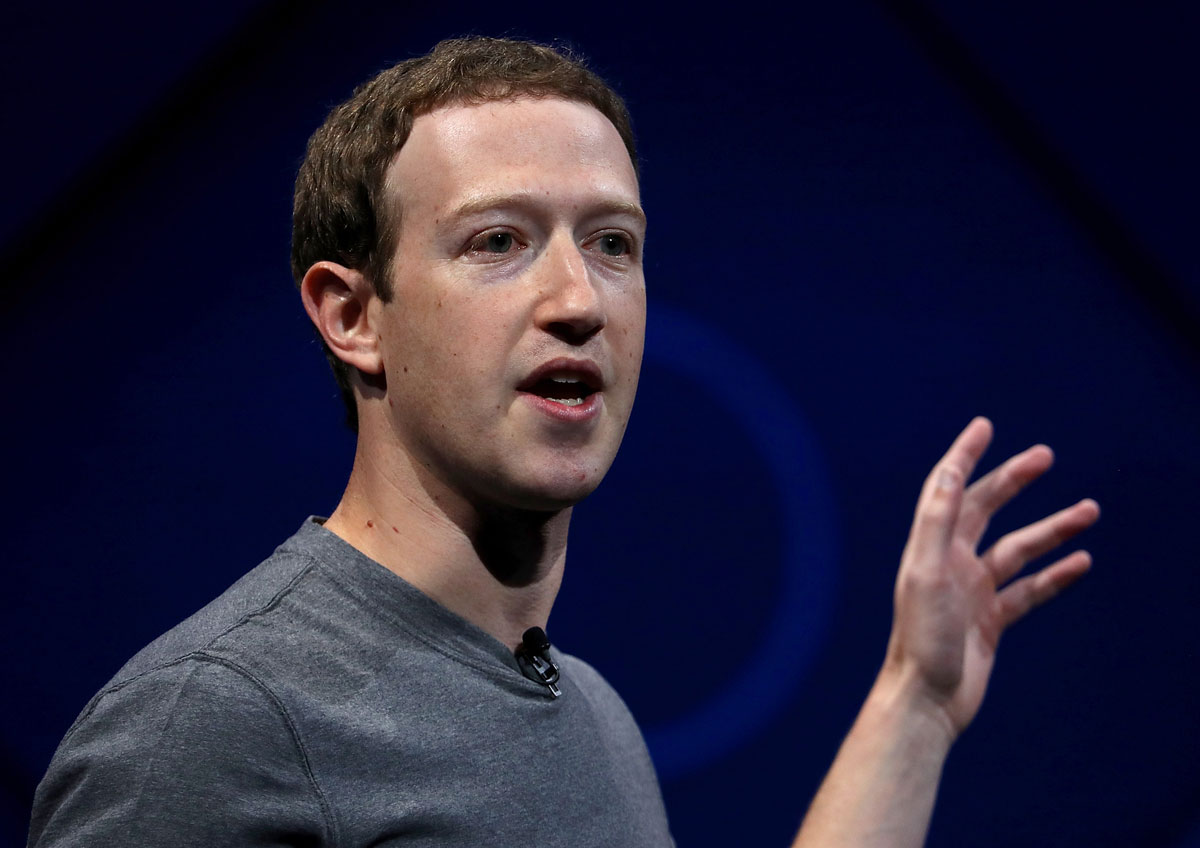Zuckerberg Rejects Trump’s Bias Claims Against Facebook
File photo of Facebook CEO Mark Zuckerberg as he delivers the keynote address at Facebook’s F8 Developer Conference on April 18, at McEnery Convention Center in San Jose, Calif. (Justin Sullivan/Getty Images)
Mark Zuckerberg has hit back at President Donald Trump for accusing Facebook of being “always anti-Trump,” saying the leading social networking site is a platform for all ideas, writes Lalit K. Jha.
The president had accused Facebook of “collusion” on Twitter, branding it “anti-Trump.”
Reacting to Trump’s accusation, Facebook CEO and founder Zuckerberg said the social media platform had tried to be neutral in the 2016 U.S. elections.
Zuckerberg, however, said, he regretted dismissing concerns about the Facebook’s role in influencing the U.S. presidential race.
“Every day I work to bring people together and build a community for everyone. We hope to give all people a voice and create a platform for all ideas,” he said on his Facebook page.
“Trump says Facebook is against him. Liberals say we helped Trump. Both sides are upset about ideas and content they don’t like. That’s what running a platform for all ideas looks like,” he argued.
Days after Facebook agreed to cooperate with Congress on its investigation of Russian meddling in the 2016 election, President Trump criticized the social network for being “anti-Trump.”
Trump tweeted: “Facebook was always anti-Trump. The Networks were always anti-Trump hence, Fake News, @nytimes (apologized) & @wapo were anti-Trump. Collusion?”
Facebook has said last week that it would provide the contents of 3,000 ads bought by a Russian agency to congressional investigators and make political advertising on its platform more transparent.
Zuckerberg defended the company’s decision to cooperate with investigators. “We will do our part to defend against nation states attempting to spread misinformation and subvert elections.”
In his long Facebook note, Zuckerberg expressed regret for saying after the election that it was a “crazy idea” that fake news disseminated on Facebook influenced the election.
“After the election, I made a comment that I thought the idea misinformation on Facebook changed the outcome of the election was a crazy idea. Calling that crazy was dismissive and I regret it,” he wrote.
“This is too important an issue to be dismissive.” he said.
Shortly after Trump’s victory, the Facebook CEO had brushed aside charges that Facebook had had an impact on the race, calling it a “pretty crazy idea” and saying that voters “make decisions based on their lived experience.”
He said that Facebook’s biggest role in the U.S. election was as a platform for candidates and citizens to communicated directly with one another regarding issues.
“There were billions of interactions discussing the issues that may have never happened offline. Every topic was discussed, not just what the media covered,” he asserted.
He said the November election was the first U.S. polls where the internet was a primary way candidates communicated to the electorate.
“Every candidate had a Facebook page to communicate directly with tens of millions of followers every day.
Campaigns spent hundreds of millions advertising online to get their messages out even further. That’s 1000x more than any problematic ads we’ve found,” he said.
He said the ‘get out the vote’ efforts by Facebook helped as many as two million people register to vote.
This initiative was bigger than the ‘get out the vote’ efforts of the Trump and Clinton campaigns put together.
That’s a big deal,” Zuckerberg said.
“We will continue to work to build a community for all people. We will do our part to defend against nation states attempting to spread misinformation and subvert elections,” he said.


